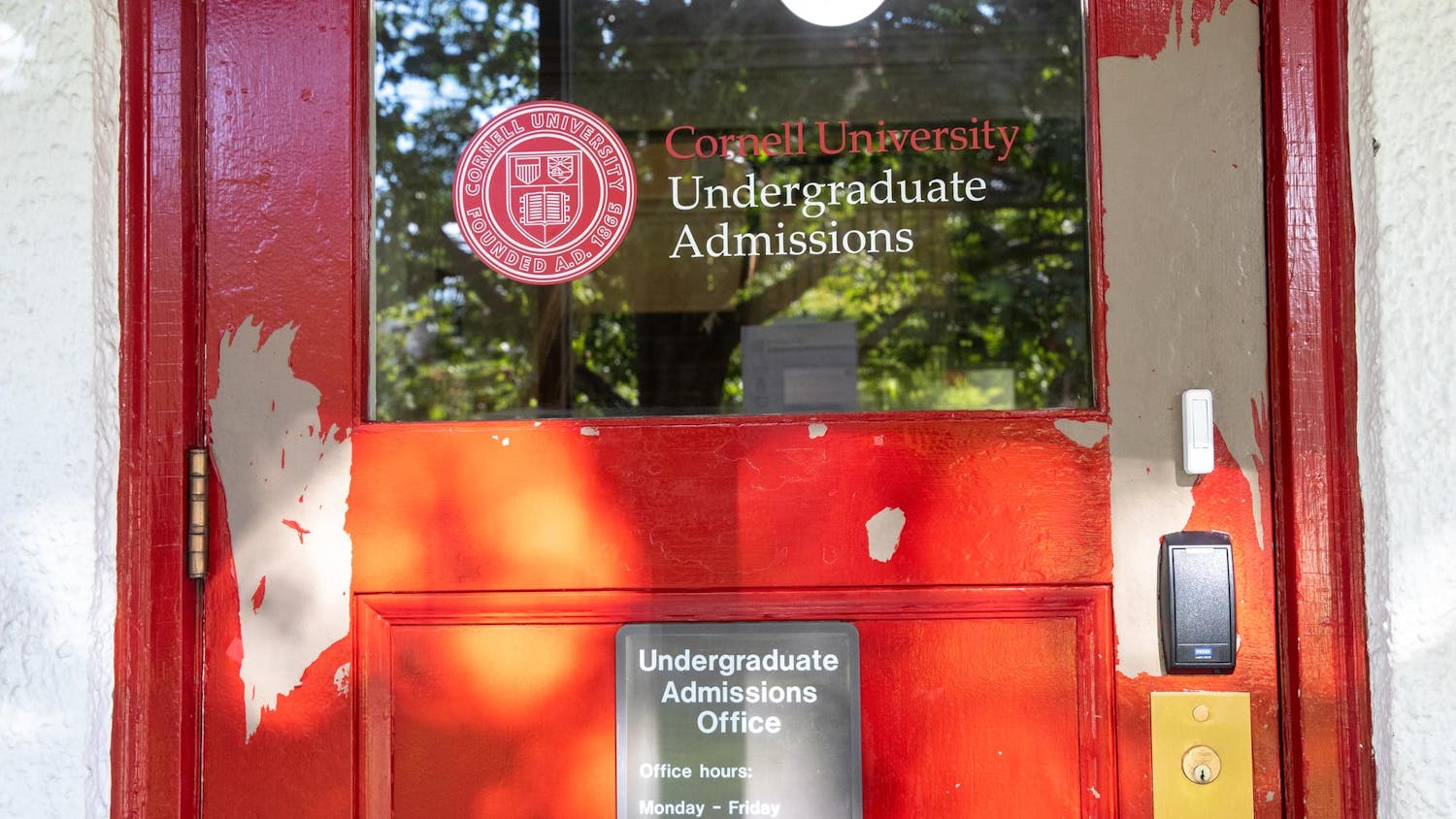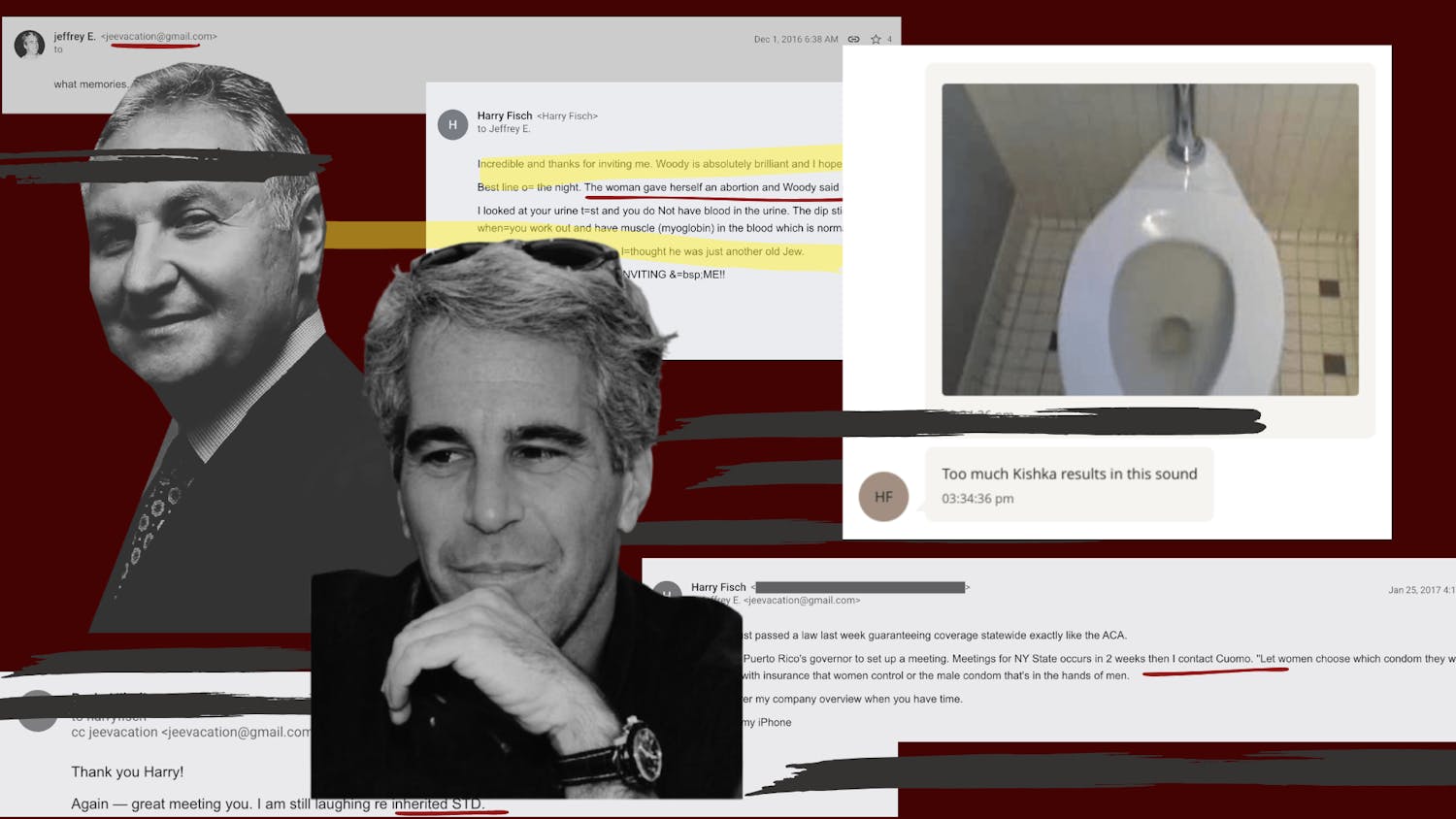Congressman Tom Reed (R-NY) discussed his plan to lower the cost of higher education and defended his call for an investigation of Cornell last year when challenged by students at a town hall in Rockefeller Tuesday.
Reed began by explaining how the REDUCE Act — a bill he is working to promote — would help lower the cost of college, saying it would allocate 25 percent of the returns of university endowments over one billion dollars to financial aid for middle and low income students.
“With this bill, we have opened up a hornet’s nest,” he said. “As you can imagine [with] your endowment office here at Cornell — your top administrators are quite upset with this proposal.”
Reed explained that when he graduated law school, he was over $100,000 in debt, adding that he now often hears stories from people with almost twice that amount of debt.
When Reed asked audience members if they felt that their money was being well spent by Cornell, Robbie Dunbar ’18, Arts and Sciences representative on the Student Assembly, said in his position he sees University inefficiency “firsthand.”
“I think that at the same time they’re trying to increase tuition and increase fees here and there,” Dunbar said. “I just don’t think there’s adequate use of that money when administrators have a lofty payroll and whatnot and the quality of education really hasn’t changed. In fact in some ways some things have been watered down.”
The newly elected chair of Cornell Republicans, Olivia Corn ’19, agreed, saying that she feels the money allocated to Gannett from her health fee is not being allocated to Gannett from her health fee is not being allocated prudently.
“A lot of money goes to health facilities which I’m going to be perfectly honest are absolutely atrocious,” she said. “I fell last semester on a Saturday night and I fractured my hand and Gannett wasn’t open on Sunday. It wasn’t available for help. I was basically told I could either go to Cayuga Medical Center or wait and hope it got better.”
Matt Harkins ’16 challenged Reed a moment later, asking him why he had called for an investigation of Cornell and threatened to pull government funding to the campus after a “decontextualized video” suggested that an “ISIS club” could potentially form at Cornell.
“I understand the demographics of this district,” Harkins said. “I feel that it’s disingenuous in a lot of ways and I feel suspicious of you coming here and telling us that you care about reducing the cost of college for us when a year ago you wanted to eliminate subsidies for us.”
Reed responded by calling his concerns at the time legitimate and stressing that an extreme group would have posed a threat to campus.
“Obviously we had a great concern about the potential group that would be coming to campus that would espouse that kind of radical extremism,” he said.
However, Harkins pressed Reed further, questioning his gullibility in believing that funds would have been used to support a radical group.
“Did you honestly think that they were going to start an ISIS club and fund it with Cornell money?” he asked the congressman. “You believed that?”
Alexander Andrievsky ’17 chimed in to agree with Harkins, emphasizing his belief that Reed’s visit to Cornell felt disingenuous.
“The Cornell ISIS club thing was jingoism at its worst and [Reed is] pandering to us now like [he] was pandering to rural voters a year ago,” he said after the event.
Reed was also asked to explain his endorsement of Donald Trump for president, with students asking for clarification about Trump’s views are on college cost. Reed responded by saying that although Trump has been silent on the issue, the congressman hopes that the issue will soon become a priority for Trump.
“This is something he’s been relatively quiet on and so we’re trying to use our endorsement and our position in a positive way to weigh in with their campaign and say this is something you should be rolling up our sleeves with and really become a part of,” Reed said.











